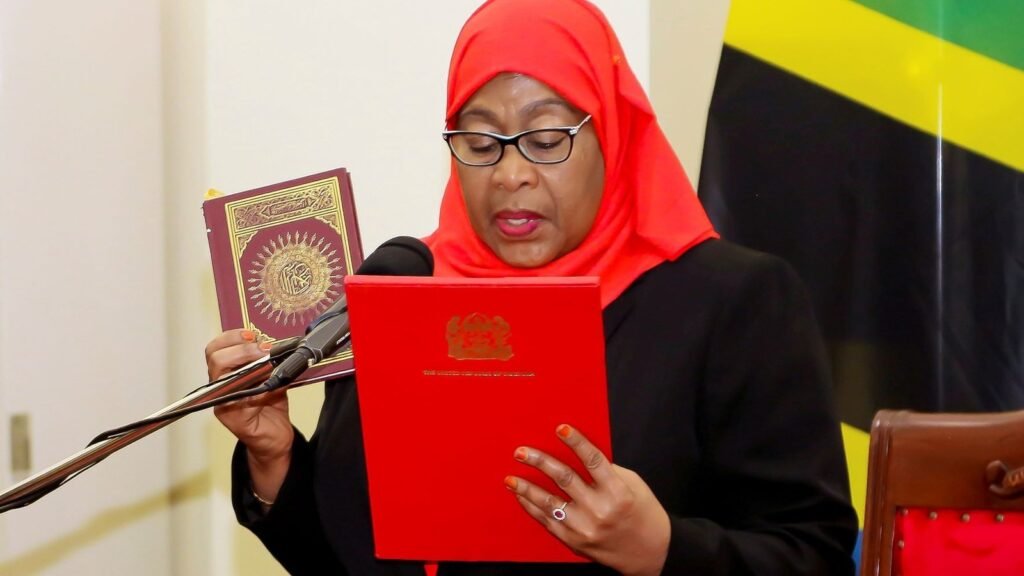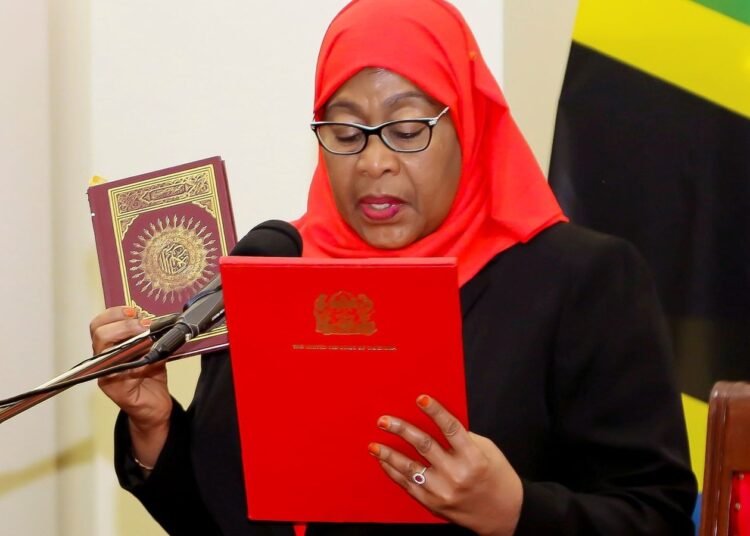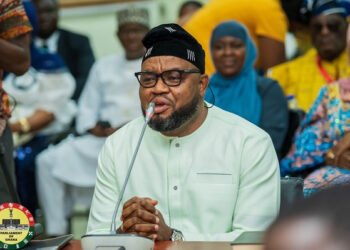Women, today, are unstoppable and, increasingly, their power and influence is rising. A number of them have shattered stereotypes to become exceptional world leaders. In this article, we look at the 7 women calling the shots in Africa as presidents and Prime Ministers.
Prior to The Central African Republic’s Elisabeth Domitien being appointed Prime Minister, in 1975, Africa had no female democratic political leader. The continent has, since then, elected or appointed a number of female presidents and prime ministers and, as at May 2023 Africa has two female presidents and five female prime ministers.
However, against the backdrop of global efforts at promoting gender equality and women empowerment, evidenced by the United Nation’s 2030 Sustainable Development Agenda – Goal 5 of the Sustainable Development Goals (SDGs) Africa is lagging behind some regions of the world
In celebrating trailblazing female political leaders, therefore, Africa’s leading magazine, Public Sector Global, lists the current female heads of state.
Sahle-Work Zewde, President of Ethiopia (October 2018 – Present)

Sahle-Work Zewde is the first elected female President of Ethiopia and is currently one of only two female presidents out of 54 presidents in Africa.
She took office on October 25, 2018. After being unanimously elected by members of the National Parliamentary Assembly to become Ethiopia’s 6th President since the formal establishment of the office of president in 1987.
Prior to her election as President, she worked as a Special Representative of United Nations (UN) Secretary-General António Guterres to the African Union (AU) and Head of the UN Office to the AU.
Earlier, she had been appointed Director-General of the UN Office at Nairobi by the then UN Secretary-General Ban Ki-moon on March 11, 2011, and is the first person to hold the post at the level of Under-Secretary-General.
Sahle-Work Zewde formerly served as Special Representative and Head of the UN Integrated Peace Building Office in the Central African Republic.
She also held a number of other high level positions, previously, including as Permanent Representative of Ethiopia to the AU and the UN Economic Commission for Africa and as Director-General for African Affairs in the Ministry of Foreign Affairs of Ethiopia.
From 2002 to 2006, she was Ethiopia’s Ambassador to France, Permanent Representative to the UN Educational, Scientific and Cultural Organization accredited to Tunisia and Morocco. From 1993 to 2002, she was Ambassador to Djibouti and Permanent Representative to the Intergovernmental Authority for Development.
From 1989 to 1993, Zewde served as Ambassador to Senegal, with accreditation to Mali, Cape Verde, Guinea-Bissau, Gambia and Guinea.
The 73-year-old is currently in the fourth year of her six-year term of office.
Samia Suluhu Hassan, President of Tanzania (March 2021 – Present)

Samia Suluhu Hassan is the first Female President of Tanzania. She was sworn into office on March 19, 2019, after the sudden passing of President John Magufuli. She was Tanzania’s first female Vice-President following the 2015 General election.
Prior to being selected as the running mate of CCM presidential candidate John Magufuli in the October 2015 election, Hassan was an avid journalist and activist in Tanzania.
She and Magufuli stood in the October 2020 election and won another term.
In 2000, Samia Suluhu was elected as a special seat member to the Zanzibar House of Representatives and was appointed a minister by President Amani Karume. She was re-elected in 2005 and was re-appointed as a minister in another portfolio.
In 2010, she sought election to the National Assembly, standing in the parliamentary constituency of Makunduchi and winning by more than 80%. President Jakaya Kikwete appointed her as the Minister of State for Union Affairs.
In 2014, she was elected as the Vice-Chairperson of the Constituent Assembly tasked with drafting the country’s new constitution.
Her Excellency Samia is the 6th President of Tanzania; her government has been instrumental in improving the political climate in the country. She formed a task force on political reform and democracy that compiled comments and suggestions from members of civil society, the media, and other leaders; the task force then presented recommendations to her for consideration.
Dr. Saara Kuugongelwa-Amadhila – Namibia Prime Minister (2015- Date)

Dr. Saara Kuugongelwa-Amadhila was on March 21, 2015, named Prime Minister of Namibia making her the 4th Prime Minister of Namibia. She is an established politician and economist.
Prior to her appointment as Prime Minister, she served as Minister of Finance from 2003 to 2015.
Kuugongelwa-Amadhila is a member of the South West Africa People’s Organization (SWAPO).
She has been a member of the National Assembly of Namibia since 1995; she first entered the National Assembly at age 27.
A graduate of Lincoln University in Pennsylvania, United States Kuugongelwa-Amadhila served as the Director General of the National Planning Commission from 1995 -2003.
Dr. Saara has Honorary Doctorate in Public Finance and MSC in Financial Economics.
Victoire Tomegah Dogbe –Togo Prime Minister (2020 to date)

Victoire Tomegah Dogbe became the first female prime minister of the Republic of Togo after her appointment by President Faure Gnassingbe in September 2020.
She took over Komi Sélom Klassou who had been in office since 2015
She is the first woman to ever hold the position. She had earlier served as Minister of Grassroots Development, Handicrafts, Youth and Youth Employment in the Komi Sélom Klassou Government and as Cabinet Director of President Faure Essozimna Gnassingbé
Prior to joining politics, the 60-year-old worked with the United Nations Development Programme (UNDP) office in Benin.
Najla Bouden Romdhane – Tunisia Prime Minister (2021-Date)

Najla Bouden Romdhane was named Tunisia’s first female Prime Minister by President Kais Saied who appointed her in September 2021.
Romdhane will be Tunisia’s 10th Prime Minister since a 2011 uprising overthrew longtime president Zine El Abidine Ben Ali
Until her appointment, she held the position of General Director and Head of the Management Unit of the Higher Education Modernisation Project.
She is a French-educated geologist with a doctorate in geological engineering and is a geology professor at the National School of Engineers.
She also holds a master’s degree in petroleum exploration and was previously a professor of geology at the National School of Engineers of Tunis (ENIT).
She also held the position of Policy Officer in the Cabinet of the Minister of Higher Education and Scientific Research in 2015.
Robinah Nabbanja – Uganda Prime Minister (2021-Date)

Hon. Robinah Nabbanja is the 11th Prime Minister of Uganda she was appointed as Prime Minister and Leader of Government Business on June 21, 2021, making her the first woman to hold that position since Uganda became independent in 1962.
Before her ascension to that office, Nabbanja was the Minister of State for Health in charge of General Duties, a position she held since December 2019.
For 10 years from 2001 to 2010, she served as a Resident District Commissioner in the districts of Pallisa, Busia and Budaka, before joining elective politics in 2011, when she successfully contested for Kibaale District Woman Representative in the 9th Parliament (2011–2016).
In 2016, she contested for the Woman Representative seat for the Kakumiro District and won. She was re-elected for the same seat in the January 2021 elections.
Between 1990 and 2000, Nabbanja obtained Certificates and Diplomas in Leadership, Management and Development Studies, from various institutions, in Uganda, including Uganda Martyrs University. She later obtained a Bachelor of Democracy and Development Studies Degree from the same institution in 2013. Rt. Hon. Nabbanja Robinah is a Master’s student in Monitoring and Evaluation at Nkumba University, Kampala Campus.
Manuela Roka Botey- Equatorial Guinea Prime Minister (2023 –Date)

Manuela Roka Botey, the first woman Prime Minister in Equatorial Guinea’s history, was appointed to the post in 2023, by President Teodoro Obiang Nguema Mbasogo.
Botey had been the Minister for National Education, University Education and Sports since August 2020.
She was also the Vice-Dean of the Faculty of Letters and Social Sciences at the National University of Equatorial Guinea.
By: Alexander Bombande






























































